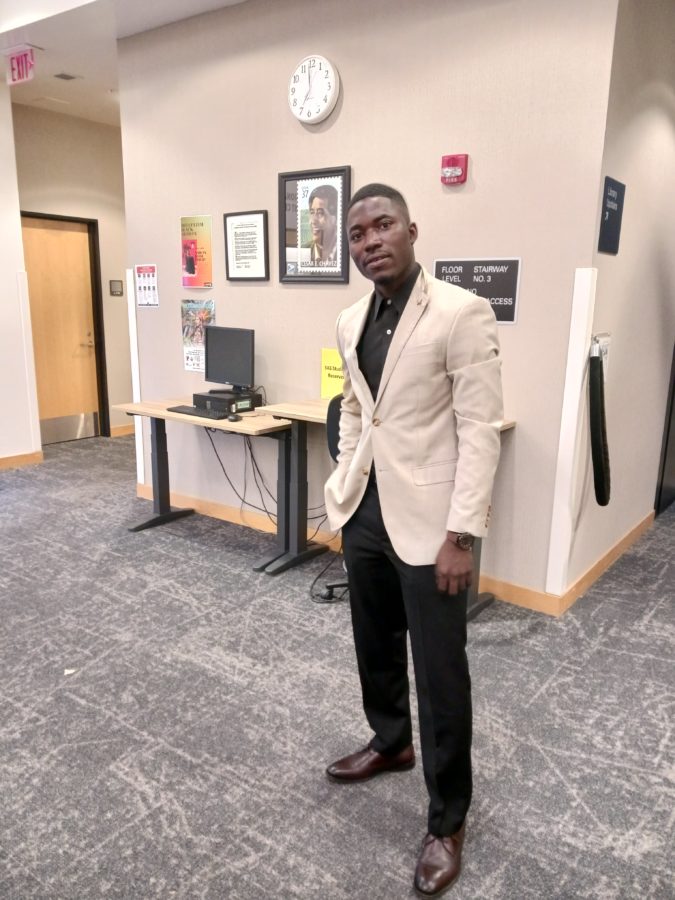Dear San Jose City Times Editor,
As the adjunct instructor that was interviewed for the article, “Teachers Divided Between Colleges,” I was disappointed when I saw how some of my quotes were taken out of context. I was very disappointed to see that my quote about the availability of adjuncts on campus was taken out of context. I also remember telling Marc Brodeur that I hoped this article would show adjuncts in a positive way.
Let me clarify what I said since the author of the article left out the whole quote. When I spoke to Marc, I told him that the full time instructors teach four or more classes so they are able to help more students, since they are teaching more classes. Also, because the full time instructors are on campus more, while the adjuncts are teaching at other colleges. I also informed him during the interview that the adjuncts are able to meet with students during their office hours or longer in GE 119, and students can make appointments as well, plus they can contact us online. Adjunct instructors are available on campus and online in order to help students. Adjunct instructors are here on campus to help students to succeed in their educational goals.
I informed the interviewer that adjunct instructors are given wonderful opportunities to help strengthen their teaching strategies in order to keep current on the new teaching methods. The Metas program at SJCC gave me the opportunity to take two OnCourse workshops that teaches strategies on student retention which I utilize in all of my classes. In the spring of 2014 I took a Reading Apprenticeship online course that Mission College paid for and I earned 3 graduate units from CSU East Bay for it. I let him know that in 2013 I earned my Reading Certificate in Post Secondary Reading from San Francisco State.
Teaching is an extremely rewarding profession. Adjunct instructors are dedicated, care about helping their students, and are available to help their students succeed. The main focus is teaching and I am very happy to be an adjunct because I get to do what I love, which is teaching. When I get up in the morning, I look forward to seeing my students and coming to San Jose City College. I have wonderful colleagues. My dean, Keiko Kimura has always supported and encouraged me. Plus, I feel that we have an extremely strong support team that includes the Metas Program, the Reading Writing Center, the librarians, ITSS Dept., wonderful counselors at the DSP&S and at the Metas Center, as well as the Reprographics team who all help adjuncts to help the students succeed in college. I told the interviewer that we have a strong supportive team here at SJCC, in addition I told him about my love for teaching, but he did not put any of this in the article, and I wish that he had.
Sincerely,
Patricia Alvarez
Proud Adjunct English Instructor
Dear Patricia:
The Times regrets that you feel you have been misquoted or taken out of context. That was not the intention of the reporter. The focus of the article was to shed light on the effects of the widely used practice of hiring adjunct faculty over full-time faculty on students. Adjunct faculty are dedicated and talented people, but adjuncts could spend a lifetime as part timers and never get offered a full-time contract. Adjuncts, as stated in the article, don’t always have the amenities that a full-time professor would have. While yes City College does have the adjunct lounge and modern conveniences such as email to make it easier for students to reach their professors at any time; it is still not the same as having office hours where a student can drop by and receive one-on-one help in a last minute need for help without having to schedule an appointment. The Times appreciates the work of our adjunct faculty and hopes this article can act as a starting point for a larger discussion on the practice of hiring adjunct faculty.
Marc Brodeur,
Spring 2014 staff writer
Dear Editors,
I was happy to see your article on the situation with adjunct professors and their relationship to student performance. It’s very timely. But there are some themes that have not been touched upon in this piece, which is somewhat dispassionately written and statistics-based. One of these unaddressed themes is social justice. Essentially, you are discussing the “Walmartization” of education. NO college or university can be critical of Walmart, Nike or any other exploitive company if that university or college is also engaging in similar labor practices. On this matter, San Jose City College — which is supposedly a bulwark of social justice — is particularly vulnerable to criticism. SJCC is not being socially just to its part-time employees. The numbers shown in the college Times report are staggering. Nationally—and by inference, locally—nearly 80% of the work is being done by adjuncts. Sitting atop these educational beehives are full-time faculty, officers and administrators, who are hard-working, and compensated respectfully and reasonably; they’re the ones getting 80% of the salaries. This is a classic structure of Pareto’s law: 80% of the population gets 20% of the value, and 20% of the population gets the remaining 80%. If you are getting a picture that mirrors the world economy—and perhaps suggests a plantation-like work structure, then (good!) you are alert to the problem. They are “the family” and we are “The Help.” (I have a friend who has worked at SJCC for 16 years, yet he’s still not qualified to be part of that “family.” He described the adjunct condition very well a few weeks ago: “We’re kind of here, but we’re kind of not.” This gives me an idea for a film called “Sixteen Years an Adjunct.” In the interests of social justice, my friend (and others) should be “grandfathered” into full-time status; he’s a fine writer and a fine teacher).
I would also like to add some comments about the asserted un-availability of adjuncts to students. Email and other internet features make us all virtual next-door neighbors in communications. Technology has expanded our discourse beyond the physical classroom, enabling us to meet with students in the middle of the night through email. Additionally, we often meet with students on an as-required basis in the adjunct “lounge.” I, for one, have met with students in the adjunct lounge tutoring them during the summer on a pro-bono basis to assist them in course completion, university-required personal statements, or references for university applications. I have also loaned out extra textbooks to those who are in distress, and CD’s and DVD’s to allow for expanded classroom context. I believe others have made similar contributions.
There’s much more to be said about this subject, and I hope this is just the beginning of a dialogue that will give it the energy it deserves.
I love my job and working with students, but I sense a deep injustice here.
Tony Pino
English Teacher
Dear Anthony:
The Times appreciates your feedback on this article. The topic of adjunct faculty is a large one that has a lot of depth to it. The purpose of this article was to act as what will hopefully be a starting point for a larger discussion. The focus of this article was to show the effects of hiring practice of adjuncts over full-time faculty on the student body. It does not even begin to touch the larger topics such as benefits and salary. The Times looks forward to continuing to work on this topic in the future, and appreciate all feedback and input from our fellow adjunct professors.
Marc Brodeur,
Spring 2014 staff writer







